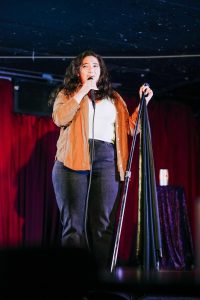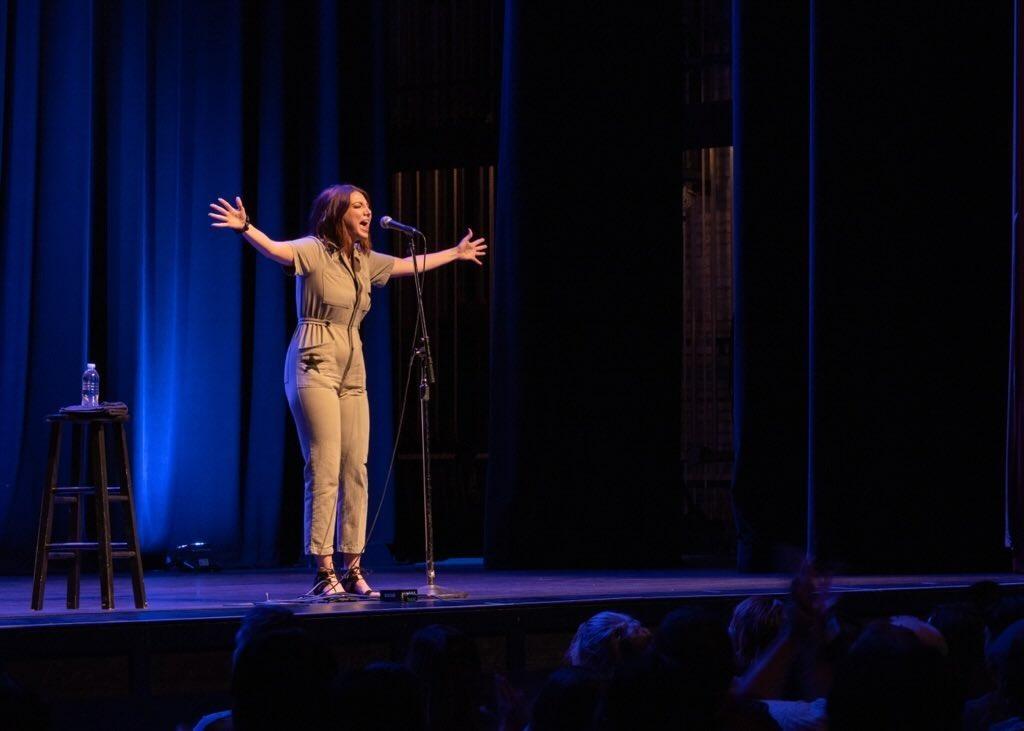Four years ago, BBC News published an article titled “Men are funnier than women, study claims.” It referenced researchers who found that 63 percent of men were funnier than women.
The stereotype that women are not funny existed before this research was published, but that hasn’t blocked out women from the comedy scene in the Twin Cities. Stereotypes about female comedians present them with a few more challenges than their male counterparts.
Comedians often perform at night which, for many female-presenting individuals, is a worrisome time. Before becoming a company member at Acme Comedy in Minneapolis, Elise Cole first started performing stand-up at a bar in Big Lake, Minn. The audience was mostly men and the bar was in the middle of nowhere.
Cole heard male comics talk about these types of shows, with their main complaint being that smaller audiences make it harder to do a full-length set, but Cole was more worried about her safety.
Being a comedian, Cole took this feeling and made a joke out of it. She would talk about how when new male comics started they would get a lot of advice based on comedy. The punchline was when Cole told a fellow female comic that she would be headlining in a more remote place, her advice was a bit different.
“She was like, ‘Oh my god! Congratulations! I’m really happy for you! You should get a gun,’” Cole said.
Comedian Lucy Beers Shenk elaborated on the negative parts of being a woman comic.
“It can be harder for a woman to seem likable on stage,” Shenk said.
Male comics often don’t have to worry about their appearance when they get on stage. The same is not true for women in the comedy scene.

Comedian Lisa Evanson, who recently returned to the Twin Cities comedy scene, shared she has come to realize that audiences will sometimes act differently based on how she dresses. Once when she dressed up for a performance, she described that it was more of an uphill battle to engage the audience than when she dressed in a sweatshirt and jeans. Evanson added this is an experience that she has heard about from other women comedians.
Minneapolis-born comedian Cianna Violet said sometimes in more rural areas it can feel impossible to make a crowd laugh.
“There definitely are times where the crowd just isn’t open to the idea that a woman should be a comedian,” Violet said.
While being a woman in the comedy scene can have its difficulties, all of the women interviewed by the Minnesota Daily mentioned there is a connection with the women they encounter, both in audiences and other women comedians.
Cole is an older comedian with a partner, kids and a house. She has found her jokes often resonate with women between the ages of 35 and 65 because her jokes are often about marriage, being a parent, and balancing work and home life. Cole has had audience members come up to her and tell her that her jokes have resonated with them because her comedy allowed other women to laugh about life events that are typically a point of stress for them.
Shenk has been doing comedy for about two years but has already “made some amazing friends and … get to be around who I really respect [for] their comedy writing,” Shenk said.
Cole also has a mostly positive attitude about being a woman in comedy, attributing it to the fact that she focuses on her goals as a comic. Cole said if she has been overlooked because she is a woman, it would be news to her.
Many of the comedians made the point that the fear of being a woman in a male-dominated scene shouldn’t get in the way of trying stand-up comedy.
“If there are any women out there who want to try it and are unsure about it, they should definitely just do it,” Violet said.
While being a woman in the comedy industry has its struggles, many of the women interviewed agree comedians who succeed in the scene are the ones who care more about the craft of comedy than the demographics.














